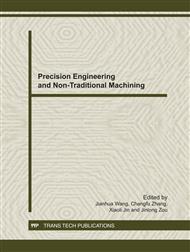p.537
p.542
p.548
p.552
p.559
p.563
p.567
p.572
p.576
Overview on Emotion-Affected Behavior Selection Mechanism
Abstract:
The traditional Behavior Selection Mechanism (BSM) has two problems: it can’t be achieved autonomously under uncertainty conditions; its selection is absence of diversity under the same conditions. Being inspirited by the research achievements in emotion mechanism application to affective calculation and reinforcement learning, emotion is applied to BSM research to settle its problems. An emotion-affected mechanism is suggested. It is design-based totally; there are not the corresponding academic supports on it. Therefore, there exist three problems: the necessary elements, which it should have had, have not involved in; its architectures and emotion models are different; in addition, systematic analysis and comparisons have not been conducted among them. The suggestions are offered that the emotion-affected behavior selection mechanism should start off with mining the internal consistency among relevant research results of emotion in microeconomics, psychology, ethology, etc. Meanwhile, comparative research method will be meaningful.
Info:
Periodical:
Pages:
559-562
DOI:
Citation:
Online since:
November 2011
Authors:
Price:
Сopyright:
© 2012 Trans Tech Publications Ltd. All Rights Reserved
Share:
Citation:


